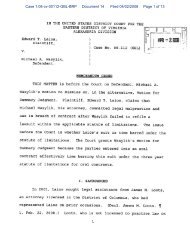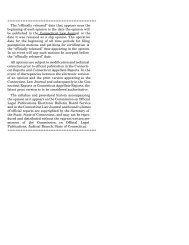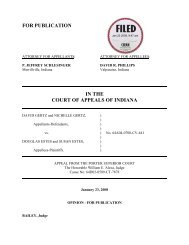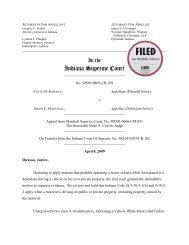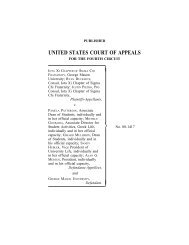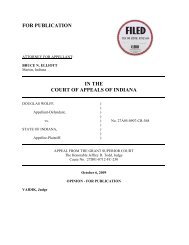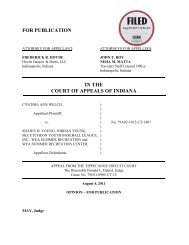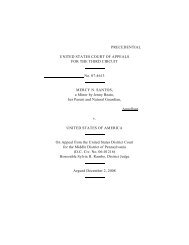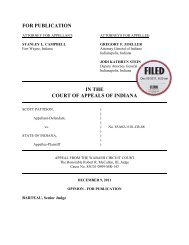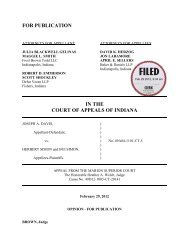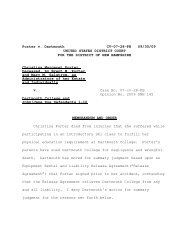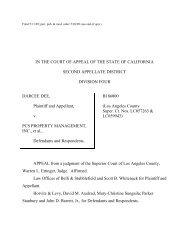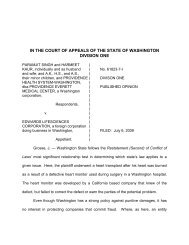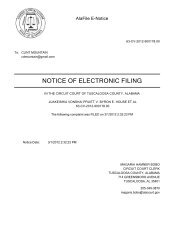141837-Opinion - Michigan Courts - State of Michigan
141837-Opinion - Michigan Courts - State of Michigan
141837-Opinion - Michigan Courts - State of Michigan
Create successful ePaper yourself
Turn your PDF publications into a flip-book with our unique Google optimized e-Paper software.
The prior resisting-arrest statute, MCL 750.749 as enacted by 1931 PA 328,<br />
prohibited obstructing or resisting a person “authorized by law to maintain and preserve<br />
the peace, in their lawful acts . . . .” 26 The current resisting-arrest statute, MCL 750.81d,<br />
prohibits obstructing or resisting an “individual” who is “performing his or her duties.”<br />
We cannot conclude that the common-law right to resist an unlawful act by an <strong>of</strong>ficer<br />
ceased to exist merely because the Legislature did not include the word “lawful” in this<br />
phrase from MCL 750.81d. In fact, this Court has recently clarified that the Legislature’s<br />
failure to expressly provide for a common-law defense in a criminal statute does not<br />
prevent a defendant from relying on that defense. 27<br />
In People v Dupree, this Court addressed whether a defendant could properly raise<br />
the common-law affirmative defense <strong>of</strong> self-defense when charged under the felon-in-<br />
possession statute, MCL 750.224f. 28 The felon-in-possession statute does not explicitly<br />
Nevertheless, the dissent reasons that because MCL 750.81d does not include a<br />
“‘lawful acts’ proviso,” the Legislature “clearly” and “in no uncertain terms” abrogated<br />
the common law and excluded the lawfulness <strong>of</strong> a police <strong>of</strong>ficer’s conduct as an element<br />
<strong>of</strong> resisting an <strong>of</strong>ficer. The dissent relies on a footnote in Reed v Breton, 475 Mich 531,<br />
539 n 8; 718 NW2d 770 (2006), explaining that the mere absence <strong>of</strong> language<br />
specifically abrogating the common law does not necessarily mean that no abrogation<br />
occurred. However, nothing in Reed changes the longstanding rule that the Legislature<br />
must speak in no uncertain terms when it intends to abrogate the common law, and Reed<br />
does not support the dissent’s position that the mere absence <strong>of</strong> language is somehow the<br />
same as the presence <strong>of</strong> “no uncertain terms.”<br />
26 We note that while MCL 750.479 was amended by 2002 PA 270, it has not been<br />
repealed and remains an alternative statute under which resisting and obstructing may be<br />
charged.<br />
27 People v Dupree, 486 Mich 693, 705; 788 NW2d 399 (2010).<br />
28 Dupree, 486 Mich at 705.<br />
10



